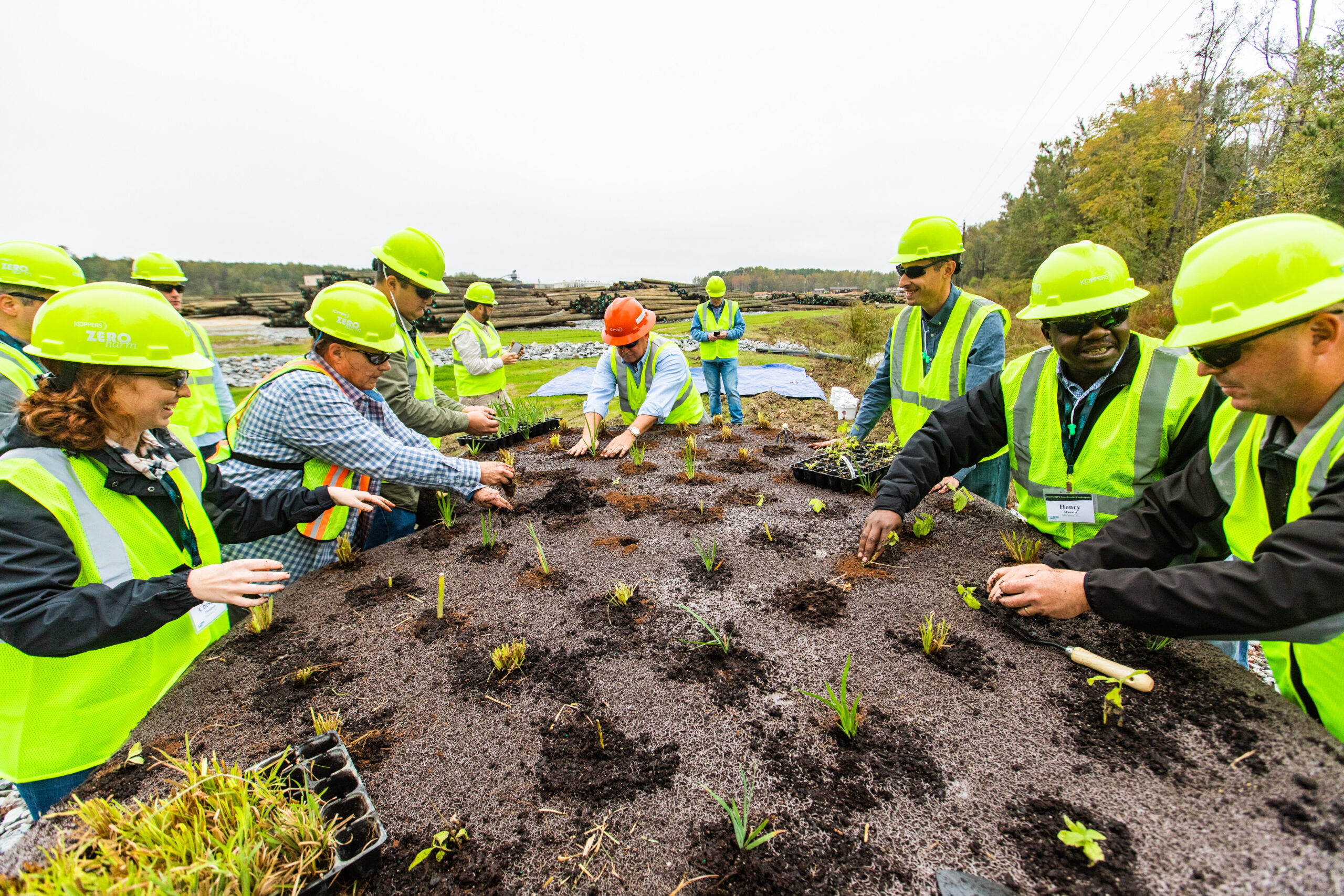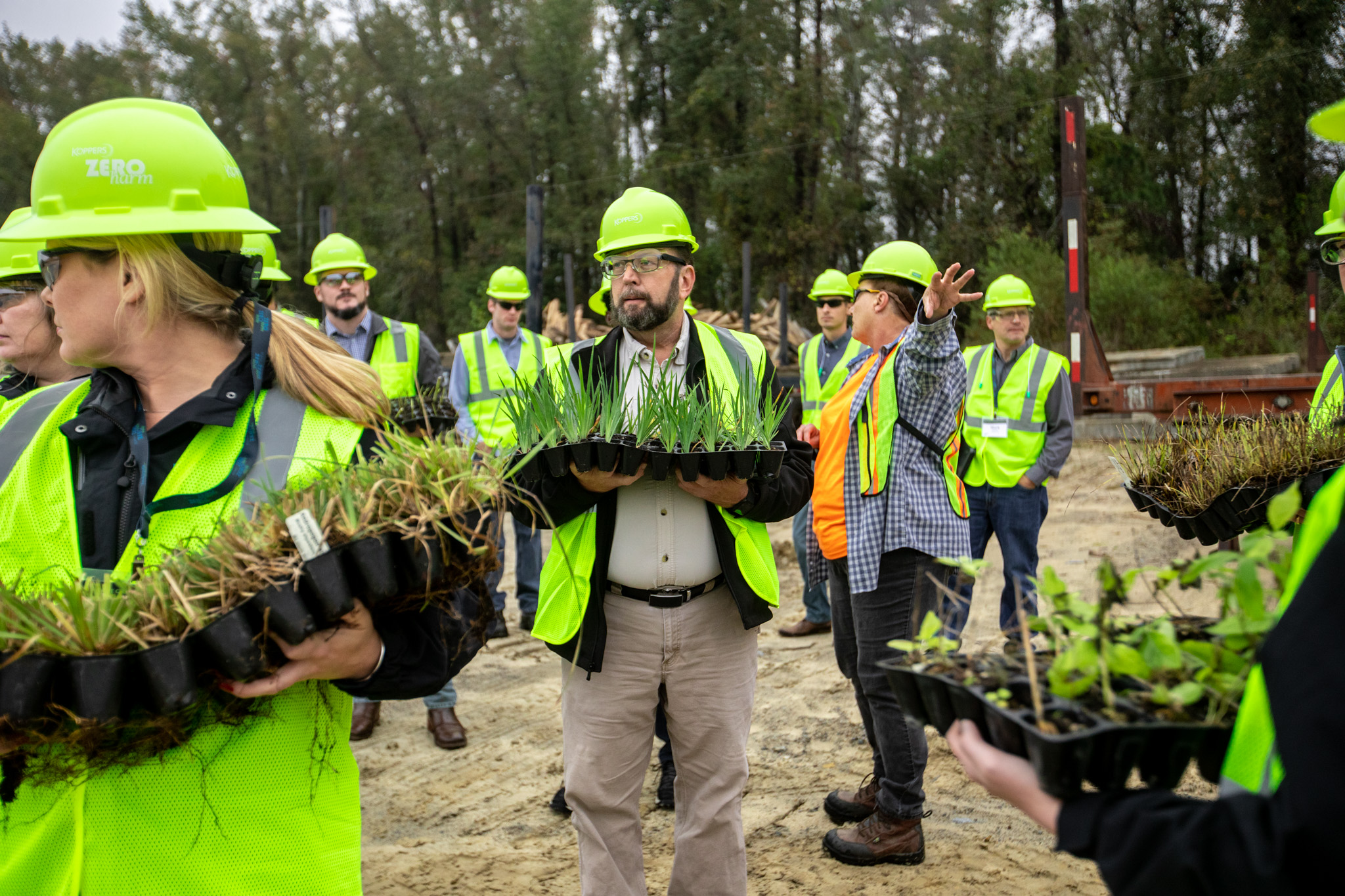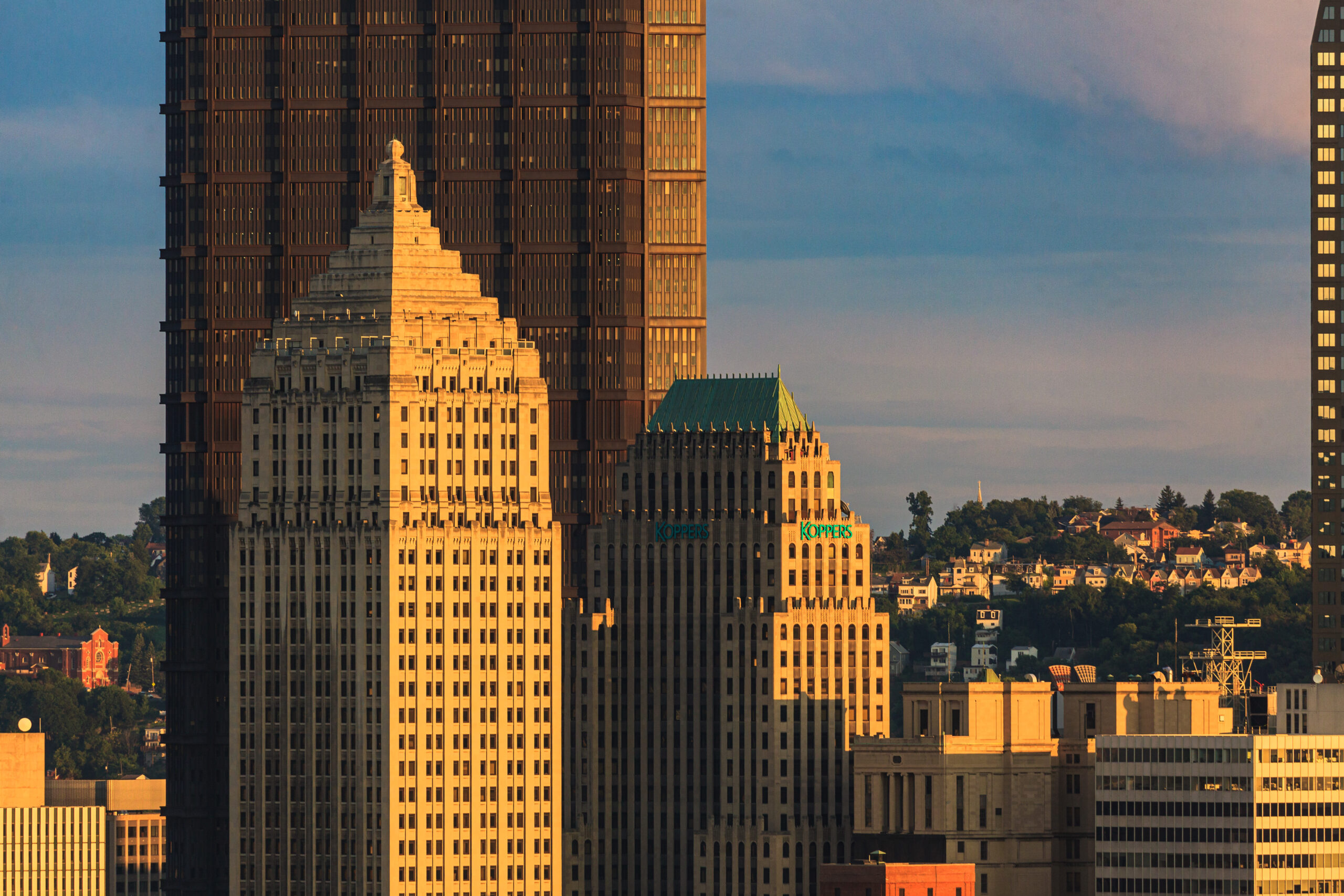
Koppers Helping the World to Reuse its Most Renewable Resources
by Mark Soroka
April 21, 2022
Wood has been called the ultimate renewable resource. Natural, durable and replenishable, wood is helping the world to mitigate the effects of climate change and achieve a more sustainable future.
“Wood is the world’s most environmentally friendly building product,” said Leslie Hyde, Chief Sustainability Officer for Koppers. “Wood can be repeatedly grown and harvested. It also leaves a lighter carbon footprint than other building materials such as concrete or steel. What’s more, wood offers a long service life, and it can be recycled and reused beneficially.”
As one of the world’s leading providers of treated wood products, wood treatment chemicals and carbon compounds, Koppers is demonstrating how large corporations can make a difference with sound sustainability practices.
“At Koppers, we see sustainability as the intersection of three things: people, planet and performance,” said Hyde, who oversees the company’s global sustainability initiatives from its corporate headquarters in Pittsburgh. “We put the safety and well-being of people first, understanding that how we treat people matters. We own our responsibility to the planet and to future generations. And we hold ourselves accountable for creating value for all our stakeholders.”
Koppers’ business model is circular by nature, structured on the reuse of waste and scrap materials to drive its production of wood preservatives for railroad ties, utility poles and other outdoor wooden structures. These preservatives can extend the life of wood products for up to 40 years — ultimately reducing the harvesting of trees and preserving natural carbon stores. The key to Koppers’ business model and one of its top sustainability priorities is its “cradle-to-cradle” strategy. Koppers is starting to recover its products at the end of their life spans to reuse them for other purposes.
“Our Recovery businesses go out and recover railroad ties and utility poles when they are at the end of their useful life,” explained Hyde. “Some of those wood products can be reused for landscaping or converted to fuel for industrial boilers. In addition, we use crude coke oven tar, a byproduct of the coke manufacturing process, and distill it into several valuable products, some of which we use in our own manufacturing processes. We also use 100 percent recycled copper as a raw material in our Performance Chemicals business. Our goal is to reuse these products for as long as possible and keep them out of landfills.”
Hyde added that Koppers is also looking for ways to reduce greenhouse gas emissions that are being released from its manufacturing facilities.
“Some of our facilities are starting to install solar power equipment to help mitigate the effects of climate change,” she said. “As severe weather events continue to happen at a more frequent pace, our Climate Action Sustainability Team is looking at the potential impact of climate change events at our own facilities. We are setting strategic goals to reduce greenhouse gas emissions, based on sustainable development goals that have been established by the United Nations.”


Recently, Newsweek named Koppers as “One of America’s Most Responsible Companies.” This is the second consecutive year that Koppers has made the list from a pool of the 2,000 largest US-based public companies, based on revenue.
“We are proud to be included in this prestigious list of companies,” said Hyde. “It demonstrates our commitment to sustainability throughout the nation and around the world.”
Koppers also continues to support several philanthropic causes in communities across the greater Pittsburgh area, and it is dedicated to educating young people on STEM topics in order to develop leaders in these vital industries for years to come.
“At Koppers, we’ve been proud to call Western Pennsylvania our home for many years,” said Hyde. “It’s a great honor to be a community partner and help make Pittsburgh a green model for other cities around the world.”

Leave A Comment